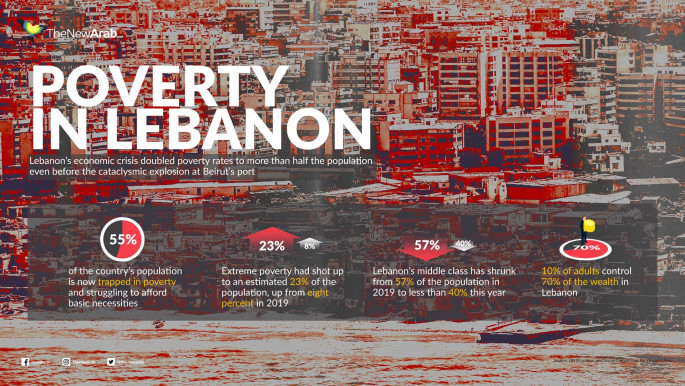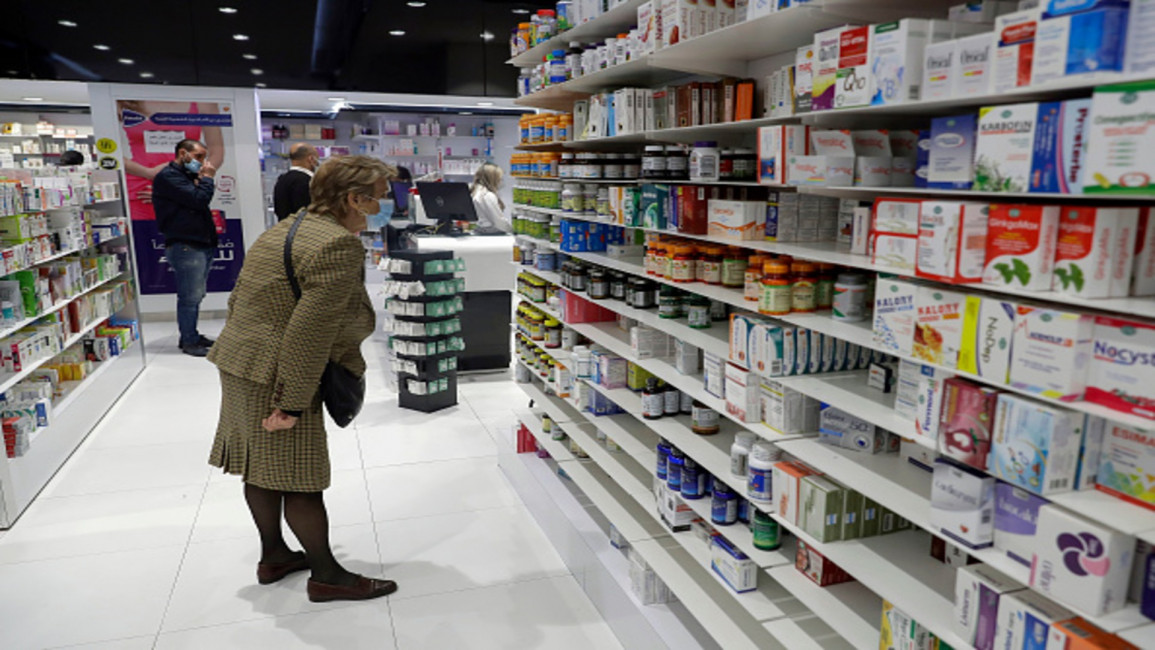Lebanon pharmacists on strike as drug supplies dwindle
Unionized pharmacists staged a sit-in in front of the Health Ministry in the Bir Hasan area of Beirut to demand a solution to ongoing medicine shortages and an increase in their revenue, while strikes took place in Beirut, Tripoli, Sidon, Nabatiye, the Bekaa Valley and Mount Lebanon.
Heart medicines and other essential drugs have disappeared from shelves across Lebanon as the country’s economy falls deeper into disarray. The Lebanese Order of Nurses syndicate launched a similar action on Wednesday, declaring a "state of emergency" and crossing their arms in protest for some hours.
“No medication can be brought over the counter any longer,” Céline Abou Karam, a health care administrator working in a Beirut medical centre told The New Arab.
Pharmacies are catering to their own clients, she said, providing the remaining batches only to regulars who are in possess of a prescription.
“People have been collecting medications and stockpiling them at home as there is fear of not being able to find them anymore.”
Abou Karam said hospitals unable to provide drugs have asked relatives of hospitalised patients to fetch them on the market, which “is an additional stress and challenge for a patient.”
Lebanon is heavily dependent on imports and 85 percent of its drugs come from abroad.
The national currency has depreciated by nearly 80 percent as a result of the country's economic crisis and this has pushed over a half the population into poverty.
Read also: 'So bad for you': doctors flee crisis-hit Lebanon
Many Lebanese now search the country and beyond for necessary drugs or ask aid groups, foreign organisations and travellers flying into the country for help.
Nour Najem, the chair of Lebanon Needs, a non-profit organisation founded by Lebanese healthcare professionals said that “many life-saving medications are completely out of the market.”
“We ask donors from abroad for donations and whenever a patient reaches out, we provide one or two months of medications, hoping the market will eventually reach an equilibrium” Najem told The New Arab.
Currently, medicines such as insulin are running low, with “patients panicking and running around trying to find the medication they need,” according to Najem.
Officials and pharmacists say panic buying has worsened the shortages. Brawls erupted this week in food shops as some closed their doors or restricted customers’ orders. Shops still operating may not be able to remain open for long, media reports have said.
Outgoing Lebanese Prime Minister Hassan Diab has warned that the government risks no longer being able to keep subsidies active for medicines, flour and other essential goods.
Lifting subsidies is a likely step, dreaded by many who already barely make ends meet. The state has poured up to US$437 million into subsidies a month, the World Bank estimates, to keep prices in check for bread, medicine, fuel and electricity, as well as around 300 other items since mid-2020.
Last December, The World Bank rejected an appeal by Lebanon to subsidize medicines. The organisation has made clear that no assistance will be provided to Lebanon without immediate government reforms.



